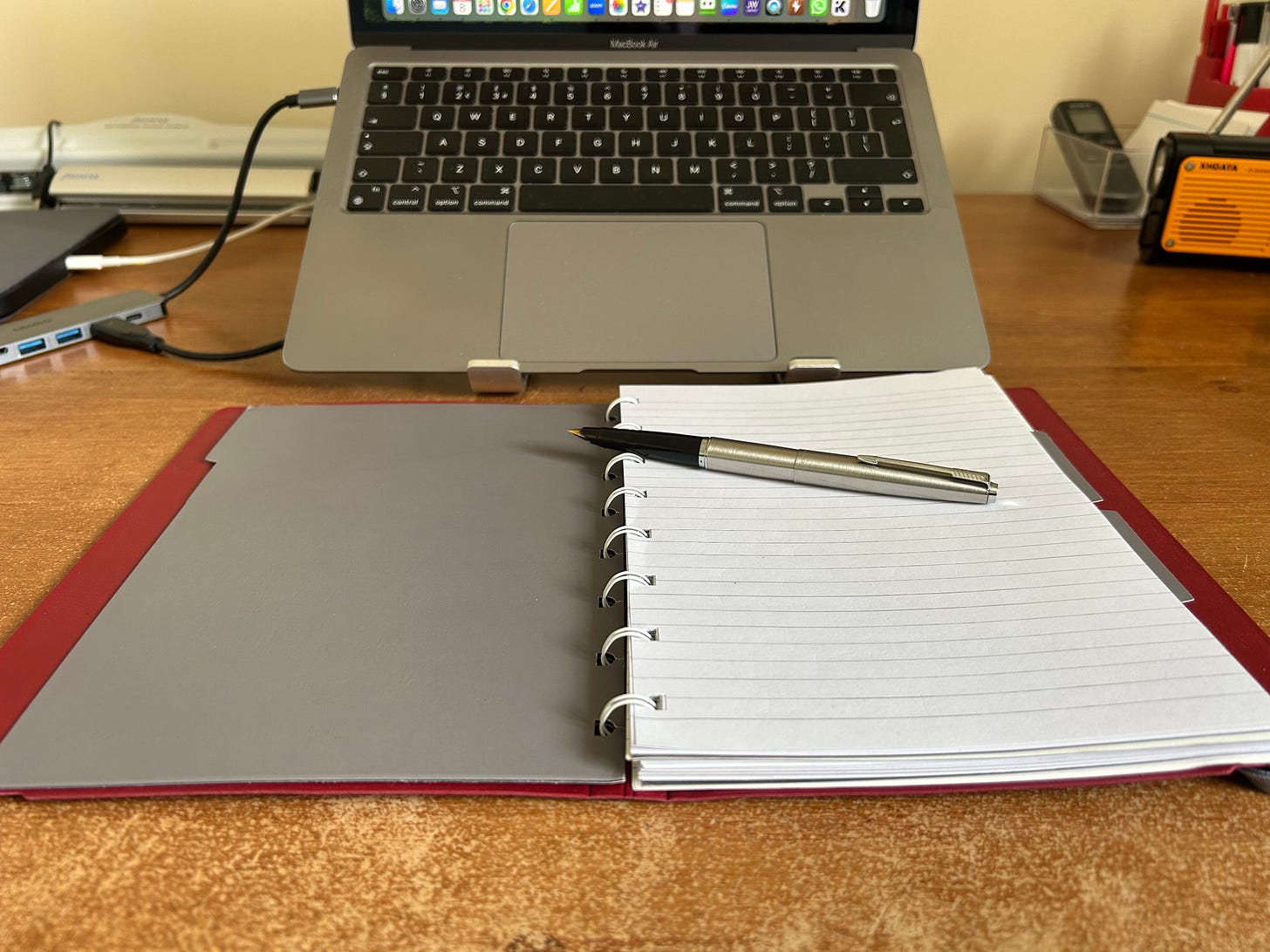Digital Notes or Paper?
Which is the best method?
We all have one. Some use it more than others. It’s portable. It’s electrical, and yet needs no batteries. It stores data and retrieves it along with a host of other functions.
What is it?
The Human Brain
The human brain! It’s said to be ‘the most complex object known in the universe’. It contains 86 billion neurons, each of which can form thousands of connections. Although it only makes up two percent of our body mass it consumes 20% of our energy.
It can store more data than anyone can imagine and, according to some scientists, is limitless. Pardon the pun but this is mind-blowing!
We all use our brains to remember things. In our very busy world today, we have any enemy to memory. It’s called distraction! We are, as humans, in the main easily distracted, especially it seems by electronic wizardry.
Electronic device manufacturers and software producers tells us that we can live our lives digitally. There are moves to get more of what we do made into a digital application. All of this seems to be affecting most of us negatively. Mobile phone addiction is definitely a real thing.
Around two years ago, I took the decision to reduce my digital use. It’s not easy because so many things are on our phones. However, I started by closing my Facebook and Instagram accounts and others are in sleep mode, merely kept to keep my name from being used by others.
My memory improved and I found that switching to writing more down on paper rather than on a notes app (I used Evernote) helped me remember more. I looked into this and found that many studies have shown we can improve our memories by going old-school.
Digital Notes v Physical Note-taking
An article found at study journal.com under the heading of The Science Behind Note-taking said this:
“Research in cognitive psychology reveals that active engagement with material significantly improves learning outcomes. Techniques such as summarizing, paraphrasing, and organizing information activate different regions of the brain, promoting deeper understanding and long-term retention.
Additionally, the act of writing (either by hand or digitally) stimulates neural pathways, reinforcing learning more effectively than passive listening.”
That latter part of the quotation is important. When we write by hand there are more movements than typing. There is the cursive nature of writing, the grip of the pen, the feel of pen on paper and the turning of pages, even holding a notebook in hand if it’s not resting on a desk.
Now I know these days you can write with an electronic stylus but they lack the feel of a good pen and paper. They also place you on a device that at any moment can distract you from the task in hand; whether that’s by pop up notifications or your willpower fading and opening apps yourself.
If you would like to obtain a really good pen at an affordable price, I can recommend Ellington Pens. Better still — click this link and a built in discount of 20% is taken off the prices!1
Writing on paper can also make it easier to look at a note already written a short while before for clarification on something we wish to note now, or link to for later use. That’s not so easy in a note app. I can flick back 20 pages in a notebook and see what I need in seconds and not lose my place.
Another article found on the website of the National Library of Medicine says, “These studies indicated the importance of visual and tactile cues for perceiving constant physical sizes and spatial locations, because “the material substrate of paper provides physical, tactile, spatiotemporally fixed cues to the length of the text””.
Once again this article makes the point that this physical interaction with a pen and paper helped the subjects of the study to remember more than those who used electronic methods.
It also appears that when we type, we tend to write down the words we hear, and if researching online, copy and paste is a real temptation. The thought process about the subject we are making notes about is reduced, and what we hear is more like dictation than something to think about.
When I was researching this post I used a notebook to write down key points. My writing instrument for this, a Parker fountain pen. This choice of writing with a lovely instrument makes me write more with purpose and brings pleasure. Quotations to be used were copied into Apple Pages so those could be copied and pasted into this story. That’s making good use of time as to write it out word for word onto paper and then into this story would take time and potentially lead to an error if a typo was not noticed.
What I find, though, is that by making my notes on paper it helps me gather my thoughts about what I want to write about. Having the notebook on my desk and away from a screen gives more time for my brain to process the information, raise questions, look at new perspectives and more, than when adding more information to a screen to recall for later use.
Now don’t get me wrong, digital notes can have advantages. They can be accessed across multiple devices and from anywhere in the world that has Internet access. They can be searched for a phrase or word, stored in relevant folders and so on. However, the note-taking here is not about storage and easy access, it’s about making notes of things we should, or need, to remember. It’s also about improving our mental wellbeing.
Physical notes can be kept for centuries without fear of them being lost or inaccessible in software updates. The notebooks, diaries and journals of the great and no-so-great have been kept and can be read today. People such as Leonardo da Vinci left many wonderful notes for us to read now. Electronic notes can easily disappear along with many other records that were all once paper-based. Some historians are worried that in the future it will not be possible to access records made electronically. As we all know, we have to keep changing our devices as upgrades make old machines useless. Paper, although it can be destroyed, has a much longer shelf life.
There are some who scan their notebooks to have a back up and use online. That is one way to take advantage of digital tools and yet retain the good old-fashioned method of note-taking with pen and paper.
How do you record your notes? On paper, electronically or a maybe a combination? Let me know by leaving a comment.
I hope you have enjoyed reading this story. If you’re not a subscriber to Roland’s Travels and Notebook, please click the button below. Thank you to all those who heart and share, I really do appreciate it. If you, as a free subscriber, would like to further support what I do with a paid subscription, please click the Upgrade button below.
If you make a purchase with this link, I will receive a small commission, which will help support my writing and podcasting costs.





I thought of you recently, Roland, when I was in my local WHSmith — and I looked at the fountain pens! (Well, it's a start!) All the memories of using them at school came flooding back.
In the late '80s, when I got my Amiga 500, I started making notes and saving them on floppy disks. I browsed through them recently. Some were journal-style entries about my dad's last few years, so it was heavy going.
I've used paper a lot for notes and journals, but a few years ago, I scanned several of my old diaries and shredded the originals.
I'm often torn between the two formats. Digitising everything feels like a way to preserve it and for both my sons to have a copy one day. (Deep down, I know they're unlikely to be interested or have the time.) Of course, file formats become obsolete, so paper might be safer. Except for the risk of flood, fire, theft, etc.
Today, I get carried away worrying about the need to preserve things in digital form, no matter how they were created. I wish I could go back to a simpler life and not care so much if things get lost over the years.